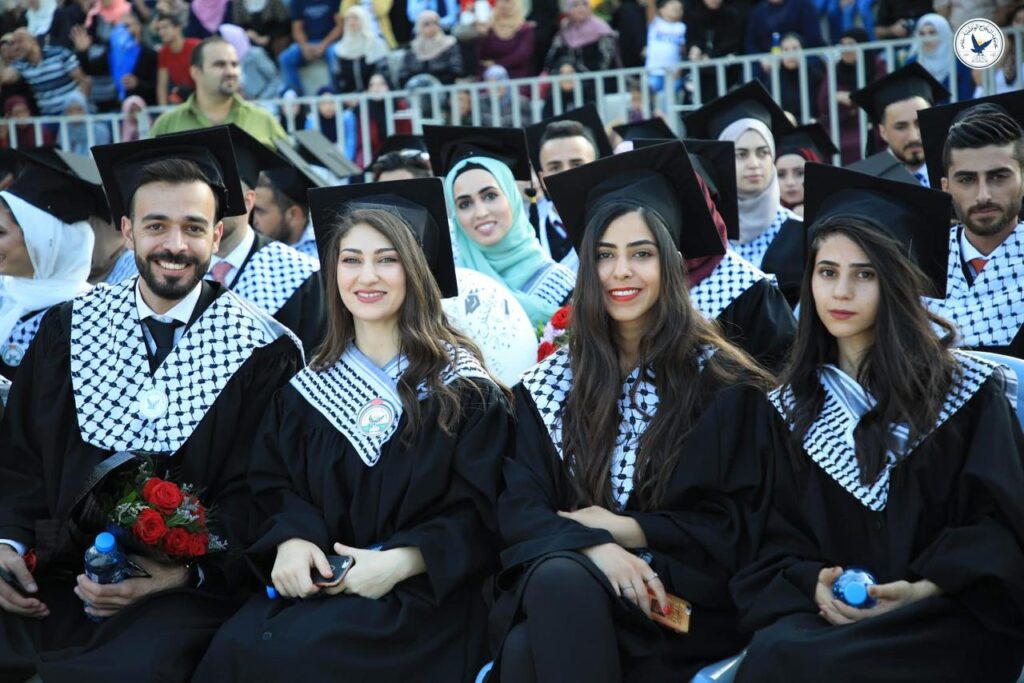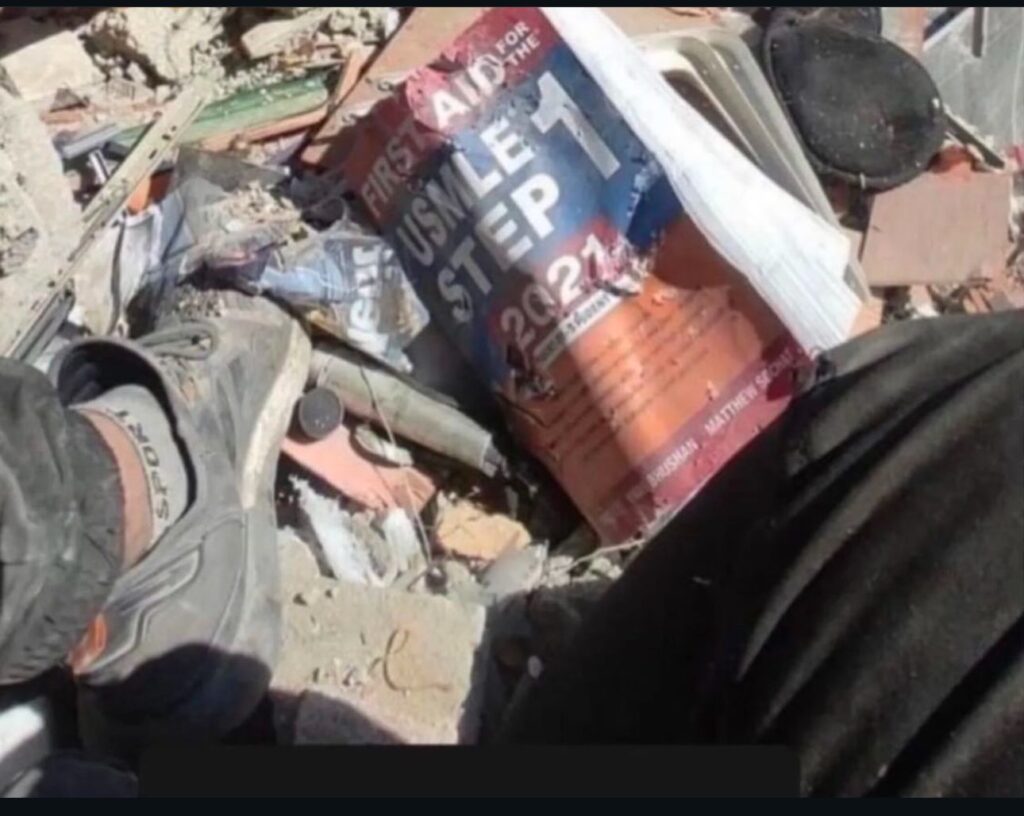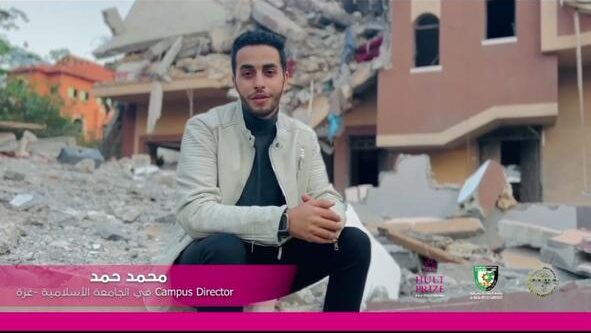Scholarship Season in the Arab World: A Mixed Bag of Hope and Despair

By Yara Marei / Arab America Contributing Writer
Studying by the dim glow of a candle is a cliché often used by Arab parents to emphasize the hardships they endured to secure their education and inspire their children to pursue a brighter future. But what if this familiar phrase wasn’t just a metaphor? What if it reflected the stark reality of a student hunching over a tattered desk, scribbling answers on a sheet of paper by candlelight? In another home, a mother shields her child as an airstrike erupts nearby, reducing their house and a library of dreams to rubble. These are not scenes from war regions; they are snapshots of resilience and ambition that define this year’s scholarship season in the Arab world.
For many, the opportunity to study abroad is far more than an academic milestone; it is a lifeline, a beacon of hope, and a promise of a brighter future.
Middle East Tension
Yet, this season feels different. The challenges are heavier, the stakes higher. Across Gaza, the West Bank, Jordan, Egypt, Sudan, Libya, and Syria, the weight of war, discrimination, poverty, and displacement hangs heavy over students who dare to dream. The scholarship applications they submit carry more than answers; they carry the stories of their struggles, their resilience, and their unyielding hope for change.
each year, the scholarship season brings fierce competition among students in the Arab world. This year, however, feels very different. It’s filled with mixed emotions: hope, fear, disappointment, and ambition. The hardships faced by countries in the region add to the challenges. Gaza suffers from relentless bombings. The West Bank struggles with discrimination. In Jordan, even highly educated individuals face unemployment. Egypt deals with poverty, Sudan faces terror from armed groups, and Libya is caught in political chaos. Syria’s refugees live in camps with harsh conditions. For students in these areas, winning a scholarship is not just about education; it’s about survival and creating a better future.
Dreams Amid the Rubble

One heartbreaking image from Gaza encapsulates the harsh realities of this season: a USMLE (United States Medical Licensing Examination) preparation book found amidst the ashes of a bombed house. Despite living under the constant threat of airstrikes, young students in Gaza continue to study for opportunities abroad. The scholarship isn’t just an academic pursuit; it’s a promise of escape and hope for a safer, brighter future.
Life-Altering Loss

In Gaza, a young girl submitted a scholarship application, particularly a Chevening application, while not marking any disability within the Equal Competitive Opportunity sector. Days later, an airstrike destroyed her home, and she lost her hand. She asked if she could change her answer after the scholarship deadline. Her story shows the unimaginable hardships students endure while still clinging to hope.
Leadership Through Finding Water

A student from Gaza shared his experience when he was asked about his experience in demonstrating leadership. He wrote about finding drinking water for his family in difficult conditions. For him, leadership isn’t about achievements in comfort; it’s about helping his loved ones survive. Where water is scarce is a life condition for more than two billion people in a recent statistical report published by UNICEF for 2025.
Changing References After Tragedy

Another student in Gaza faced an unimaginable tragedy when two professors listed as her references in her scholarship application, whom the scholarship committee needed to contact personally for her to get the scholarship, were killed in an airstrike just a few days after she submitted her application. She had to request to update her references and asked if that was even possible. Her request opened up the world’s imagination to think about tragedies that may not be what their minds expect in a horror movie, a reminder of how fragile life is in conflict zones.
Handwritten Dreams

Some students in refugee camps don’t have electricity, computers, or internet. Others are living in cities and houses, but even though they are suffering from severe electrical and internet outages, they opened the scholarship applications once they had limited access to the internet and wrote the scholarship essays manually, handwriting their scholarship applications, searching for help from others to help submit them online by scanning them later or inputting them again. This determination, despite such challenges, reflects their unwavering hope for a better future.
The West: Ambition and Mixed Feelings
For many Arab students, the West represents both a beacon of hope and a source of inner conflict. On the one hand, it offers opportunities for education, personal growth, and impactful projects that empower youth and contribute to national development in their home countries. On the other hand, these same Western nations are often implicated in the conflicts and destruction that have devastated their homelands.
Yet, one question often lingers in their minds: Are we hypocrites or betraying our land by pursuing this dream? This question resonates deeply among Palestinians, Lebanese, and Syrians, especially in times like these, when Israel is attacking all three countries simultaneously. For the people of these nations, the emotional burden is immense. How should they reconcile their love for the West and its ideals with the pain of seeing their homelands under siege? It’s a heartbreaking duality, leaving them torn between hope for a brighter future and loyalty to their roots.
When Opportunity Meets Hesitation

Take Mohammad Hamad, a Palestinian student from Gaza and an active leader at his university. As the Campus Director of the 2023 Hult Prize for the Islamic University of Gaza, Mohammad worked tirelessly to bring global competition to his campus, symbolizing hope and opportunity for his community. Just as he was about to host the opening ceremony, the war in Gaza erupted. Israeli airstrikes bombed both his university and his home, leaving him without a place to live, without access to education, and without the hope of competing on an international stage with other campus directors.
Mohammad’s devastation highlights a painful paradox: while the Hult Prize is a United Nations initiative aimed at empowering young entrepreneurs, many of the countries funding the UN also provide support to Israel, whose actions destroyed Ahmad’s efforts and dreams. This left Mohammad and his peers feeling betrayed, speechless, and misdirected, caught between deep disappointment and the haunting suspicion of being used as pawns in a larger, hypocritical system. You can watch his speech regarding this from here.
A Lifeline for Change
For students across the Arab world, scholarships are more than a chance to study. They offer hope for a new life, a way to improve their conditions, and an opportunity to help their families and communities. Despite overwhelming challenges, these students show incredible resilience and determination.
This year’s scholarship season reveals the stark realities of life in the Arab world. Behind each application lies a story of struggle, resilience, and unyielding hope. These stories remind us that the pursuit of education is not just about academic achievement; it’s about survival, transformation, and the possibility of a better future. As we celebrate the successes of those who make it, let us also acknowledge the immense sacrifices and challenges faced by those who dare to dream.
Check out our blog here!








